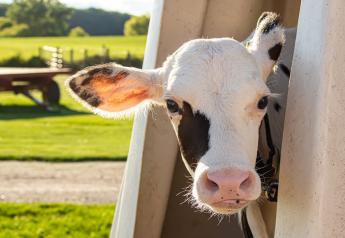4 Highly Effective Financial Habits for Farmers

Use your accounting processes to evaluate, forecast and plan
Think about how your farm has grown in size and scope in the past decade. Has your financial reporting followed suit? Would you define your financial management and bookkeeping processes as a competitive advantage or an area to improve?
“Your financial management system should help you make better and data-based decisions,” says John McNutt, management consultant with Latta Harris. “A good system will help you respond quickly to unknown challenges or opportunities, such as renewing leases, pricing grain or pursuing new ventures.”
Profitable farmers create financial habits that separate them from others. These habits, consistently applied through the years, add up, and the results are evident. Here are a few tips to consider:
1. CREATE A PAPER TRAIL.
Always keep supporting source documents for what you are paying, receiving for income, sales, money transfers, loan advances/payments and so on, advises Kristy Snyder, Compeer Financial manager of tax and accounting. “Having this paperwork will help in making sure all items are accounted for and be a resource to look at later,” she says.
2. RECONCILE AND EXAMINE FINANCIAL DATA ON A REGULAR BASIS.
McNutt suggests reconciling the bulk of your records each month; if you wait three or six months you can easily lose track of balances and inventories. For grain farmers, he recommends producing and reviewing farm financial statements twice a year — midyear and year-end. This will help you with tax planning and forward-looking decisions, such as renewing leases, booking inputs and setting budgets.
3. ANALYZE PROFITABILITY FROM SEVERAL ANGLES.
Farm profitability is the ultimate concern and focus for everyone in your organization, so tracking it, which can be complicated, is essential, says Norman Brown, president of FBS Systems. He suggests tracking profitability in multiple ways:
- Revenue per profit area: This metric measures profit per unit of farmland, such as dollars per acre. While a great metric, it shouldn’t be a standalone measurement as it typically does not include costs associated with land use or maintenance.
- Economic farm surplus (EFS): This measure calculates both the cash and physical profit performance of your farm assets, including livestock and land. Brown says EFS is a great way of forecasting future performance and growth and can help you see overall performance across profit centers.
- Month-to-month profits: This measurement allows you to gauge current profits but might not provide the long-term view you need for strategic planning.
4. KEEP YOUR ACCOUNTS SEPARATE.
A common mistake farmers make, McNutt says, is commingling personal and business accounts.
“When it’s all blended together, you can’t keep track of each, and you don’t know which enterprises are profitable or not,” he says.
Aim for consistent coding. Everyone on your team needs to use the same coding strategy, Brown says. This includes accounts, centers, fields and inventory items.







